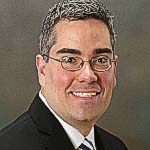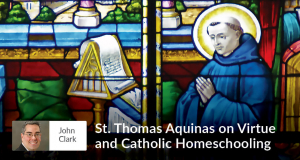1. We have not finished up the book analyses due for the high school English course. Can my child be excused from this assignment?
We very rarely excuse a student entirely from an assignment, especially one as important as a book analysis. One of the most important aspects of a good education is critical analysis. In our society today, when so many Christian ideas and values are being questioned and even attacked, we and our children need to think clearly about the teachings of Christ and how we can defend them. We can do this only if we “practice” such skills, which is our goal with the analysis skills being taught in the writing of the book reports and book analyses.
Sometimes students want to take up the time doing other assignments and neglect this more intellectually demanding assignment. To facilitate completion, we suggest your student take a week off from the other assignments and read, study, take notes, outline, and write the book analysis. You might consider scheduling a week each quarter in which the book analysis is the one and only assignment.
If you have a high school student, consider helping your student analyze current speeches or arguments by elected officials. Help your high school student become involved with the current issues in the public square. Some homeschooling high school students join the campaign for the local pro-life candidate. Such interaction with candidates, their followers, and their opposition helps students develop analysis skills to a higher degree, and helps us all to keep Christian values in our society.
2. How long are records kept on the MySeton section?
Our plan is to keep indefinitely all tests, uploaded assignments, grades, and so on. However, once a family no longer has any students enrolled, there would no longer be access to the MySeton page. In this situation, you could call to request items be emailed or mailed. Our computer department suggests that, if you want to be sure to have copies of test and assignments easily accessible, you upload them to one of the online storage sites, such as DropBox or Microsoft SkyDrive. This will give you access to your files from any internet-connected computer.
3. I have friends who would like to homeschool but say they just cannot afford it.
In comparison to traditional private schools, homeschooling is extremely inexpensive. We believe that Seton is one of the least expensive homeschool programs, when you consider all that is included (books, counseling, record-keeping, etc.) at one price.
Sending a child to a public school is probably cheaper, but even that has expenses. A writer for the Boston Globe last year tracked expenses to send two children to a public school for one year. Her total costs were just under $1600. It has been estimated that the average parent cost per public school child per year in the U.S. is $688. Considering that Seton’s kindergarten program is only $200, it is almost certainly cheaper to use Seton for kindergarten than to use a “free” public school.
To pay for homeschooling, your friends might try to find relatives who agree with them on the benefits of Catholic homeschooling. Parents should not be reluctant to ask for help, because relatives want the best for children in their families. Grandparents are often very willing to help with education costs.
If your friends are in a parish without a parish school, sometimes the church will help a family that wants a Catholic homeschooling program. The Knights of Columbus, a parish chapter or a regional chapter, often give money for educational help for Catholic families. Seton provides a monthly payment plan option, plus discounts for additional children. Anyone who thinks he or she can’t afford homeschooling should call Seton’s admissions department to find out what the costs would actually be.
4. My son has done so well on the standardized test, I would like him to skip a grade level.
Regardless of how well a student scores on a standardized test, Seton rarely encourages skipping a grade level. The reason is that each grade level progresses a little more each year, and some new lesson with important instructions could easily be missed or not stressed in the next grade. Most importantly, each grade level expects a certain intellectual development, certain analysis skills, a certain ability to “read between the lines.” This is a process that takes time and brain development and cannot be rushed.
Rather than skipping, we suggest extra activities and more in-depth learning. Determine the particular interests of your child and structure the lesson plans to allow more time for those interests. You might find extra books on a topic, or have your child complete special projects, or whatever you can think of to stimulate learning.
5. Is it okay to continue homeschooling over the summer months? I think my children might benefit from that.
There are some families who continue homeschooling over the summer months for certain subjects, especially for subjects in which progress may be lost if the student has no practice for three months. The most common subjects parents like to continue are math and reading. Most students don’t read enough and have not since the advent of television, that is, for the past 60 years! Try to find some books that would be good reading as regards Christian family values, yet are not stretching too much in vocabulary or concepts that might be difficult. Consider starting a book club with other homeschooling families, or have a family book club. Choose the books and reward your child for every book read. Before television, summertime was a time for children to read, read, read!
You might have a student who loves science or history. Reward him for reading at least one science or history book per week. Consider having him talk at the dinner table about a book he has read, and what interesting facts he has learned.
Sometimes a student needs to keep practicing his math throughout the summer. You might find math workbooks, some with games or math puzzles. There are plenty of math games and puzzles on the Internet, often by grade level, which can be downloaded.
6. How much choice does a Seton high school student have in the selection of courses?
Many courses are required courses. Colleges expect students to have a certain number of credits for English, science, history, and government, and math classes. Colleges expect students to have two years of a foreign language, so there are not too many choices left. The trend in recent years has been to expect more of a core curriculum, with less variation among students. For example, most high schools are now requiring Economics.
We do offer quite a few electives, though. In most subject areas, such as English or math, we have required courses and electives available. In math, for example, we offer Accounting, Calculus, and Advanced Math, in addition to the required Algebra and Geometry courses. In English, we offer the electives of Shakespeare and World Literature. We also offer two computer courses: Introduction to Computers and Computer Programming.
The required courses are extremely important for students to do well on the SAT or ACT tests. High scores on these tests can make a huge difference to college costs. Colleges often give automatic merit-based financial aid to students who score a certain number on the SAT or ACT. Competitive scholarships often require a minimum score as well. A few hundred point difference on the SAT could mean savings of $25,000 or more over the course of a college education.
Students should be thinking about college as early as ninth grade, and should arrange to visit prospective colleges as early as the second or third year of high school. A good deal of information about the colleges is available online. Look on the Seton website under Parent Resources, and scroll down to Colleges Attended by Seton Students. Click on the name of the college to go immediately to that college’s website.
We have three high school curriculum counselors. You can find them on our website with their photos and backgrounds: Gene McGuirk, Bob Wiesner, and Chris Smith.
7. What are the most important subjects I should teach every day to my elementary children?
The most important subjects to teach every day are religion, math, reading and phonics, and composition (writing sentences and paragraphs). The second most important courses are English, vocabulary, and spelling. If you don’t get to the history and science during the week, you can try to catch up over the weekend.
Make sure each child has a quiet place to study, where he or she has a desk and a bookcase for school books and materials. In a large family with several small children, some elementary students are continually distracted by the household activity. Many families have an area where all the children can study together, which makes it easy for a parent to supervise the work. However, most children need a quiet place where they can focus. If you have enough space, it is good to have a quiet personal space set aside for each child. Let your child decorate his or her study space with pictures or knickknacks to make the room appealing. Put up a picture of your child’s patron saint, which can be downloaded from the Internet.
8. How will the new Common Core standards affect Seton?
The Common Core State Standards (usually simply called Common Core) are a set of curriculum guidelines for public schools. These standards have been adopted by nearly all the states, which has brought concern to those who oppose national education standards. Many parents, and advocates of smaller government, believe that national standards take control away from parents and local teachers, who have the greatest knowledge of the needs of individual children.
Homeschools and private schools are not subject to these curriculum guidelines unless they accept federal funds. Seton Home Study School accepts no federal funds. We will never adopt Common Core guidelines. Our concern is the passing down of timeless Catholic truths.
Because we at Seton Home Study School write almost all of our own books, we expect Common Core to have no impact on Seton’s educational program. Regarding standardized tests, Seton students have always performed extremely well on standardized tests, and we expect this to continue regardless of any future changes made to the tests.
If you would like more information about Common Core and homeschooling, the Home School Legal Defense Association (www.hslda.org) has written many articles on this topic.
An outstanding Catholic who has investigated American education for a lifetime is Phyllis Schlafly. Look on the Internet for her articles on Common Core. She publishes the monthly Phyllis Schlafly Education Reporter, which is available on the internet.

 Seton Magazine Catholic Homeschool Articles, Advice & Resources
Seton Magazine Catholic Homeschool Articles, Advice & Resources










































